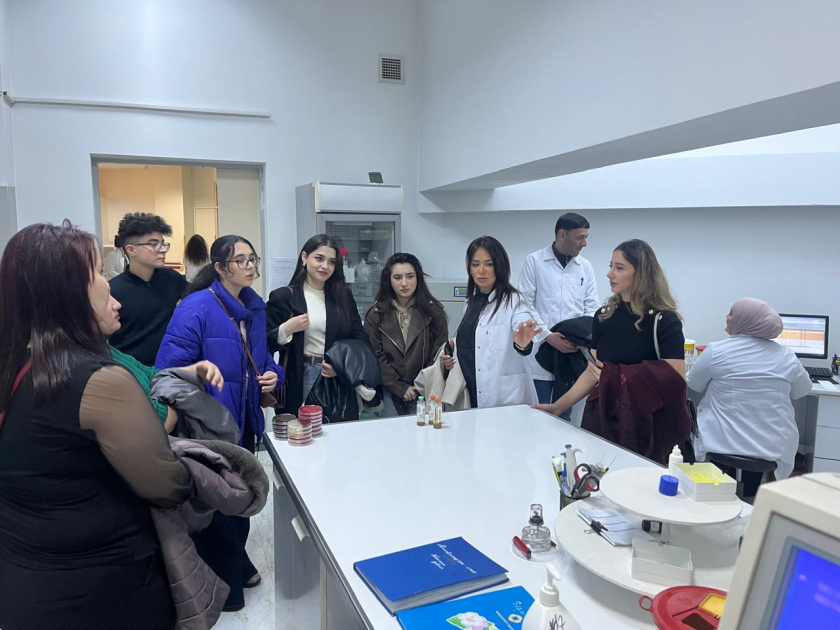Jerusalem Post
ByMAYA ABIR, NATUROPATH
You don’t have to suffer from ADHD to experience concentration difficulties during studies. Children’s nutrition, together with certain medicinal plants, can make a difference.
The beginning of the school year is an exciting time, but for children with ADHD it can be accompanied by stress, restlessness, and reduced focus. Changes in familiar surroundings, entering a new class, and academic expectations increase the burden on children, and this is exactly where natural methods such as medicinal plants and tailored nutrition come in, helping adaptation and supporting attention.
In recent years, clinical studies have accumulated showing that certain plants and fungi improve blood flow to the brain, protect nerve cells, and affect neurotransmitters linked to concentration, memory, and learning ability.
1. Ginkgo Biloba – the most researched ancient tree
Ginkgo biloba, an ancient tree from Chinese tradition, is one of the most researched medicinal plants, with over 400 scientific studies examining its effects. The active compounds in the leaves improve blood flow to the brain and act as powerful antioxidants, helping protect brain cells from oxidative damage. Clinical studies have shown that taking ginkgo biloba extract can improve attention and memory indicators. A study with healthy young adults showed a positive effect observed shortly after intake, which explains why ginkgo is considered one of the most effective plants for supporting attention, concentration, and memory abilities.
2. Lion’s Mane Mushroom (Hericium) – the mushroom that grows new neural connections
Lion’s Mane mushroom has been known in traditional Chinese medicine for thousands of years, but in the past decade Western science has also discovered its potential. It contains unique compounds that encourage the production of Nerve Growth Factor (NGF), a protein essential for the differentiation of nerve cells in the brain and for protecting these cells from damage.
3. Bacopa – “feeds the brain” and helps ignore distractions
Bacopa monnieri, a key plant in traditional Indian medicine (Ayurveda), is valued for its calming and focusing effects and is known for its ability to nourish and strengthen the nervous system. A controlled clinical study in people aged 18–60 found that its intake improved focus, thought processes, and memory quality. A review of nine clinical studies with over 400 participants showed that bacopa contributes to improved cognitive functions, especially enhancing concentration and attention. For children with ADHD, the ability to “filter out noise” is crucial – and bacopa offers natural support in this area.
4. Withania somnifera (Ashwagandha) – calms and sharpens focus
Withania, also known as “Indian ginseng,” is an adaptogenic plant – meaning it helps the body adapt to stress. Clinical studies found that it improves thinking speed, psychomotor responses, and reduces fatigue – important traits during periods of academic load. In addition, it moderates stress and anxiety, factors that increase restlessness in children with ADHD.
Combining Withania with other medicinal plants at the start of the year can help children feel more stable and calm, and thus maintain focus throughout the school day.
Nutrition as a support for attention
A balanced diet plays a very significant role in supporting children’s functioning within the school framework. It is recommended to maintain a diet rich in vegetables, fruits, whole grains, essential fatty acids, and proteins from both animal and plant sources. Especially omega-3 (fish, flax seeds, walnuts), magnesium (almonds, spinach, legumes), and B vitamins (whole grains, eggs, lean meat). At the same time, it is advisable to reduce consumption of processed food, high-sugar foods, sweetened beverages, and artificial food coloring.
Tips for parents for the start of the year:
· Gradual return to routine – begin to restore sleep and wake routines about two weeks before the school year starts.
· Fixed rituals – maintaining consistent habits such as bedtime rituals including turning off screens, dimming household lights, reducing activity before sleep, reading a book together, a calming bath, and practicing gratitude.
· Daily physical activity – outdoor play, cycling, ball games, and any vigorous physical activity is an excellent way to relieve stress, improve spatial orientation, coordination, and develop self-confidence in children with ADHD. Physical activity affects the nervous system and brain and releases endorphins that help calmness, which is expressed in focus, task performance, improved mood, and energy release.
· Professional consultation – before beginning to use medicinal plants, consult a professional, especially for children taking medication.
Combining emotional and educational support, a balanced diet, and medicinal plants with research-based support can give children with ADHD a calmer and more focused starting point for the new school year and ease adaptation to a new framework.
Written by Maya Abir, Naturopath and Professional Training Manager at Bara Herbs




















